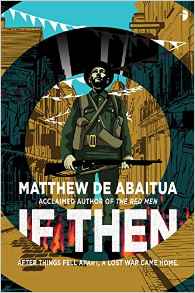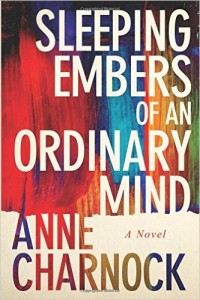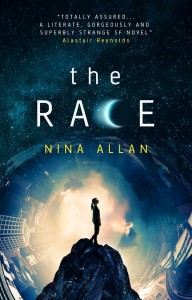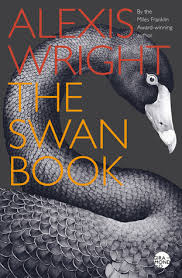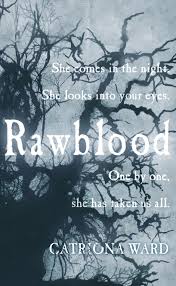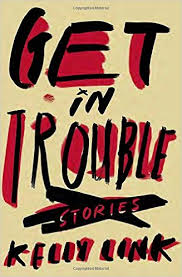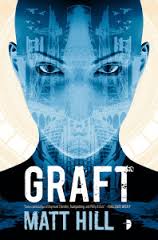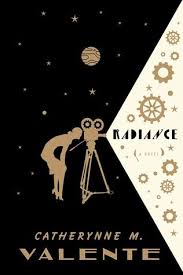So here I am, as promised, with my round-up of the short fiction and non-fiction that resonated with me this year.
The category of short fiction has, as always and as for everyone, presented me with problems. There’s too much of it for anyone to come halfway close to providing a proper assessment (although some brave souls such as Ethan Robinson, Charles Payseur, K. Tempest Bradford and Lois Tilton give it a damn good try), and for whatever reason it seems to be the discussion of short fiction in particular that becomes plagued by a kind of shallow topicality, with similar types and profiles of short fiction bobbing to the surface again and again ad infinitum. I find this depressing and tiresome, especially when the most lauded stories turn out to be pleasing enough, OK, but hardly substantial when compared with, say, an Alice Munro story or a Yiyun Li story or a David Constantine story or a Claire Vaye Watkins story or an Aminatta Forna story. (Because yes, that’s exactly the kind of comparison we should be making.) Pressures of time and general short-fiction-malaise have ensured I have done little more than skim the surface of the veritable ocean of stories that appeared in 2015. I have, however, come across some that I would be more than happy to see on any of the awards shortlists in 2016. So in no particular order:
- THE SORCERER OF THE WILDEEPS by Kai Ashante Wilson (tor.com). I don’t even know if this novella will qualify as short fiction for most awards – at around 42,000 words (I think) it breaks the word count for more than one set of guidelines – but I saw someone saying the other day that it qualifies for the Hugo and if that’s right it should win hands down. This novella is so rich, both in texture and content, that it really needs several readings to take it all in. The demi-god (or is he?) Demane falls in love with Captain, a hardened mercenary charged with guiding a merchant caravan safely through a hazardous tract of wilderness known as the Wildeeps. There is a beast at large there, it is rumoured – but what is the true nature of that beast, and what does its presence signify for the world of Captain and Demane? This is a story of magic and science, science and magic and in Sorcerer‘s concern with the bridge between these two disciplines I was reminded a little of Zachary Jernigan’s Jeroun stories. Sorcerer of the Wildeeps is a fantasy of the highest order, vital and intelligent, a tapestry of living language that tugs at your mind long after reading. I think Wilson is shaping up to be a writer of genuine importance. Bravo.
- THE PAUPER PRINCE AND THE EUCALYPTUS JINN by Usman T. Malik (tor.com). Science and magic again, but not in the same way. This story – about a second generation Pakistani-American going in search of his heritage and finding a lot more weirdness than he bargained for is mystifying and beautiful and heart-wrenching. It is also complex and nuanced and stunningly written. It fulfils all the promise that was present in Malik’s Nebula-nominated The Vaporization Enthalpy of a Peculiar Pakistani Family and all in all it just makes me glad to read something this moving, this well imagined, this intelligent. The stuff about carpets is breathtaking! Again, bravo.
- FABULOUS BEASTS by Priya Sharma (tor.com). Ancestry again, but of a weirder kind. Priya Sharma is a seriously good writer. As a commentary on the family, post-urban Britain, and sisters doing it for themselves, ‘Fabulous Beasts’ is strong and lucid and beautifully wrought. Her stories for Black Static (The Absent Shade) and Interzone (Blonde) this year are equally worthy of mention.
- HER FIRST HARVEST by Malcolm Devlin (Black Static). Adults living on a sterile mining colony have to be ‘seeded’ to grow fungal matter on their bodies as the main source of food in this bizarre and disturbing marriage of apocalyptic science fiction and Regency romance. This is original and genuinely weird and I loved it, most of all for its lucid, understated language and for actually getting under my skin… Devlin’s story in the most recent issue of Interzone, ‘Five Conversations with My Daughter (Who Travels in Time)’ is every bit as good and Devlin is most definitely a writer worth watching.
- TEA TIME by Rachel Swirsky (Lightspeed). A delicious meditation on time, metafiction, and Alice in Wonderland. This is exactly the kind of story I want to see more of. Such poise, such poetry. A lovely thing indeed.
- PAUL AND HIS SON by J. M. McDermott (Asimov’s). Brilliant story set in a near-future NYC. Paul is a lawyer. His client is Noah, a millionaire businessman who is trying to get his life-extension treatments illegally extended. Paul allies himself with Noah’s doctor in order to obtain drugs to ‘help his son to focus’ on school. Paul Jr keeps running away and he’s obsessed with machines. This is effortless worldbuilding, a near-future science fiction scenario that feels like today, squared. The relationship between a caring but clueless father and a teenage son is perfectly realised. This story is so superior to most of the other SFF short fiction out there it’s ridiculous.
- A MURMURATION by Alastair Reynolds (Interzone). A taut and effective story about obsession and madness. The idea of starling murmurations as predictive algorithms, as modular organisms, is fascinating and original. A dark story with a fantastic sense of place – the bleak fenlands of East Anglia, the narrator’s sense of alienation whilst living there, are wonderfully captured. This is a great piece of writing and I would love to see Reynolds writing more in this vein.
- DOCUMENTARY by Vajra Chandrasekera (Lightspeed). This was the first story of the year that really grabbed me. A woman who changes into a helicopter at the full moon refuses to discharge her weaponry – the one act which might cure her – in order not to perpetuate the cycle of violence. ‘Cameras’ filming the documentary are the presence of the dead who have already fallen victim to the war. A highly original variation on the werewolf trope, Mievillian without being remotely copycat. Taut yet lyrical writing. Chandrasekera is one of the most promising newer voices around.
- THE OCCIDENTAL BRIDE by Benjanun Sriduangkaew (Clarkesworld). My favourite of Sriduangkaew’s stories this year (though they’re all good), ‘The Occidental Bride’ is a biting commentary on orientalism and terrorism, set in a world torn between a shattered Europe and a surveillance-state Hong Kong. This is a terse, uneasy story, rich and disturbing, with Sriduangkaew’s characteristically dense language and vividly evoked imagery impressive as ever. Of Sriduangkaew’s other 2015 stories, I particularly enjoyed ‘Provenance’ in the all-women Lovecraft anthology She Walks in Shadows, edited by Silvia Moreno-Garcia and Paula Stiles. This is one of those darkly vibrant Mythos-in-space stories I always love, and a great one. (I’d enjoy seeing the doctor make a repeat appearance in another story sometime!) The impassioned conviction behind Sriduangkaew’s writing, coupled with her flair for language, maintain her position as one of the most interesting and competent of the new generation of short fiction writers. She’s always worth reading and I hope we see more of her next year.
- THE FAR SHORE by Yoko Tawada (Words Without Borders). A story inspired by the accident to the nuclear reactor at Fukushima. This is the future, and a young American pilot accidentally crashes his plane into a nuclear reactor off the coast of Japan. A wave of chaos, fear, death and unforeseen events spreads out from this initial accident, affecting individuals and whole states alike. The story is told in a totally deadpan, very factual manner. Effective and angry and yes, we need more SF like this.
- MINOTAUR: AN ANALYSIS OF THE SPECIES by Sean Robinson (Unlikely Story). Well, I just love fake taxonomy stories. Could read them all day. Borgesian, delightful, perfect. Exactly what it says on the tin.
- ANDROID WHORES CAN’T CRY by Natalia Theodoridou (Clarkesworld). I like everything I’ve read of Theodoridou, who is a strikingly gifted writer. I especially admire her forensic approach to devastating subject matter, as here. A story about the lies history tells, and those she exploits in the telling. This one sticks in the mind.
- Excerpt from UNLANGUAGE by Michael Cisco (Lackington’s).“At the end of a relentlessly long drive—nearly to the end of the line—the building, rambling and drab—pale lights in only a few of its many windows—silence of ceaselessly whirring air vents—tall, narrow white corridors of institutional plainness and squareness—pipes below the ceiling—paint peeling on the walls becoming pink and inflamed—wan fluorescent lights in trays—thin, sour odor of decomposing flesh—a metal door like the rest, with its thick integument of blue paint and an arrow slit. The school is not elegant; it’s like a gas station.” As the title suggests, this is actually a section from a hitherto unpublished novel, but it works perfectly well as a standalone story in its own right, and I like it too much not to include it here. Brilliant, weird and decadent as all Cisco’s fiction, this is a superb little sub-Mythos story about the untapped power of language to summon horrors. Genuinely ambitious, as all the best weird fiction should be, it reminded me in places of Jeff VanderMeer’s Annihilation. I love this story, and I wish I’d written it. As a writer, Cisco is criminally under-appreciated. I only hope he’ll let us read Unlanguage in its entirety one day soon.
- THE DAYS OF TALKING MOUNTAINS by Paul Jessup (Farrago’s Wainscot). A webzine entirely new to me, I came across Farrago’s Wainscot completely by chance. A lucky discovery and I’ll certainly be looking out for it in the future. This short, sad, frightening and surreal story about a brother Gerald and a sister Alice and the giant farm they keep in memory of the Master captivated me utterly. Replete with elliptical poetry, it reads like a piece of European weird fiction. I’ll be reading more of Jessup, that’s for sure.
- ISLANDS OFF THE COAST OF CAPITOLA, 1978 by David Herter (tor.com). This is billed as ‘a modern re-imagining’ of a story by Gene Wolfe, The Island of Doctor Death’, which was itself inspired by Wells’s novel The Island of Doctor Moreau. I’ve read the Wells but not the Wolfe, so I can’t comment on how exactly the two stories interconnect. What I can do is recommend Herter’s piece as a stunning piece of writing, from another criminally under-appreciated writer. I intend to seek out the Wolfe, so I can read the two in tandem.
Sticking with short fiction just for the moment, I’d like to give a mention to two 2015 anthology projects that particularly caught my attention. Firstly the above-mentioned SHE WALKS IN SHADOWS, which presents a range of excellent Lovecraftian fiction, all by women writers. A lot of talent and imagination has been expended on this book, including splendid cover art by Sarah K. Diesel and interior illustrations by a variety of women artists. As well as the Sriduangkaew noted above, there are standout stories from Gemma Files, Angela Slatter, Pandora Hope and Sharon Mock.
The second anthology I’d like to mention is AICKMAN’S HEIRS, edited by Simon Strantzas and published by Undertow. [DISCLAIMER: I do actually have a story in this one myself, which it is not my place to comment on here.] I’m strangely devoted to Aickman’s fiction, and so this project was always going to be close to my heart. What I could not have predicted, though, was the marvellous cohesiveness of the anthology Strantzas eventually assembled. All the stories are of a superior quality and I would recommend each and every one of them, for Aickman stalwarts and new initiates alike, but standouts for me personally include Helen Marshall’s ‘The Vault of Heaven’, Michael Cisco’s ‘Infestations’, Lisa Tuttle’s ‘The Book that Finds You’ and Malcolm Devlin’s ‘Two Brothers’.
The non-fiction category of awards – sometimes referred to as Best Related Work – presents a different kind of problem in that we’re expected to consider essay collections and other full-length works alongside individual blog posts, essays, reviews, discussion projects and articles. The reasons for this are doubtless lost in the mists of time – something to do with the vast proliferation of shorter-length online material in the age of the internet, no doubt – but clearly the rules need to be re-evaluated. Until they are, I guess the category will continue to shuffle about on the sidelines, neglected and obscure, a continuing frustration for those of us who think it’s actually rather important.
In the meantime, I guess I’ll continue to lump everything together in a shapeless mass, the same as everyone else. So again, in no particular order:
1. RAVE AND LET DIE by Adam Roberts (NewCon Press). Roberts was on the jury for the Kitschies in 2015, and alongside the challenge of judging the books (well over a hundred of them) he set himself the task of reviewing them too, thus providing a fascinating overview of the science fiction and fantasy of 2014. This book is as entertaining as it is informative. For those works that merit close attention and serious scrutiny, Roberts brings his full weight of intellect and erudition to bear. When a book is shallow, trite, poorly executed or just plain bad, Roberts seems never to run out of original and highly amusing ways of saying so. Rave and Let Die is a must for every library of SF criticism.
2. DUNE, FIFTY YEARS ON; HOW A SCIENCE FICTION NOVEL CHANGED THE WORLD by Hari Kunzru (The Guardian). “Every fantasy reflects the place and time that produced it. If The Lord of the Rings is about the rise of fascism and the trauma of the second world war, and Game of Thrones, with its cynical realpolitik and cast of precarious, entrepreneurial characters is a fairytale of neoliberalism, then Dune is the paradigmatic fantasy of the Age of Aquarius.” Any essay by Kunzru is a joy to read, and this piece, drawing on Dune’s politics and spirituality and the way they look to us now, post 9/11, is simply outstanding.
3. FROM ANNIHILATION TO ACCEPTANCE: A WRITER’S SURREAL JOURNEY by Jeff VanderMeer (The Atlantic). A fascinating and deeply personal insight into how the Southern Reach trilogy came to be written – and how it felt to write it.
4. ATEMPORALITY by Vajra Chandrasekera. As well as being one of the most exciting new short fiction writers currently on the scene, Chandrasekera is also one of the most thoughtful, original and articulate SF bloggers. The only problem with his criticism is that he doesn’t write more of it – although of course pieces demonstrating this degree of depth and clarity take real time to write, and I’d rather read one essay by him than ten hastily assembled and less considered thinkpieces by less committed writers. ‘Atemporality’ considers the impossibility of short fiction criticism in a climate where one is somehow expected to keep up with everything. WAR IS OTHER PEOPLE, Chandrasekera’s essay on Military SF, is equally worthy of mention and such a great read.
5. RACE, SPECULATIVE FICTION AND AFRO-SF by Chinelo Onwualu (New Left Project). Superb essay covering the Puppies, internet outrage, the reality of diversity and the true place of magic and spiritualism in Afro-SF. Essential, inspiring reading. Well worth considering alongside it are two other wonderful pieces, one being an interview with the Zimbabwean writer Petina Gappah in The Guardian, the other being Sofia Samatar’s powerful and essential essay for the New Inquiry, SKIN FEELING. Neither of these pieces is directly about speculative fiction, but both have a central relevance to the debates around diversity currently taking place in genre circles and should be read.
6. CLIMATE ANXIETY COUNSELLING by Kate Schapira. Driven by her own anxieties about climate change, the poet Kate Schapira first began her Climate Anxiety Counselling project in the summer of 2014 when she set up a booth in a public park and invited passers by to share their anxieties about global warming (or anything else) which she then (with their permission) transcribed into a series of flash fictions, vignettes, memoirs and prose poems. The results, many of which can be read at Schapira’s Climate Anxiety blog, are often mesmerising. Schapira’s unique approach in setting herself up as a conduit for the voices of others has resulted in a Gesamtkunstwerk that is both unique in character and vitally important.
7. SEX, DEATH AND THE MAN-OMELET IN KELLY LINK’S ‘THE SPECIALIST’S HAT’ by Helen Marshall (Weird Fiction Review). Weird Fiction Review continues to be one of the very best webzines around, and this essay by Helen Marshall, the most recent entry in WFR’s ongoing ‘101 Weird Writers’ series, is an imaginative, entertaining and thought-provoking examination of the philosophical uncanny in Link’s landmark story. Anything Marshall writes is worthy of notice, and it’s marvellous to see her beginning to build a roster of gorgeously inventive critical essays to place alongside her already remarkable body of fiction.
8. READING ELYSIUM BY JENNIFER MARIE BRISSETT by Maureen Kincaid Speller (Paper Knife). A fascinating and in-depth analysis of one of the key speculative works – and winner of the PKD Award – in 2014. I particularly enjoyed MKS’s examination of the tendency towards ‘accepted’ readings of texts within critical circles, and how this can set up a false or derailed discourse. One of MKS’s best reviews to date, I’d say (and that’s up against some pretty stiff competition).
9. ARMADA IS FUCKING TERRIBLE by Andrew Liptak. Angrily entertaining yet deadly serious in intent, Liptak’s honest, heartfelt and well argued critique of Ernest Cline’s 2015 novel Armada seeks to examine the elitist tendency within geek culture and its propensity to exclude rather than include outsiders.
10. WHY PEOPLE STOPPED READING THE STUFF YOU POST ON THE INTERNET by Jonathan McCalmont (Ruthless Culture). McCalmont’s honesty, thoughtfulness, sometimes-contrarianism and general refusal to have his views, tastes and opinions moulded by fashionable discourse are valuable and increasingly rare commodities in SFF, and although I always enjoy and appreciate his film criticism I do wish he’d go back to reviewing books, at least occasionally, because we need his voice. This piece, on the decline (?) of real blogging, is provocative and timely in equal measure.
11. FORD MADOX FORD: AS SCARY AS H.P. LOVECRAFT? by Ned Beauman (The Guardian). I loved this essay, which draws some unexpected parallels between the stories of H. P. Lovecraft and Ford Madox Ford’s seminal classic The Good Soldier. ‘Ford and Lovecraft are not often discussed in the same breath,’ says Beauman. ‘But in fact they are very similar. The difference is that Lovecraft appears to be writing about cosmic horror but is really writing about sex, whereas Ford appears to be writing about sex but is really writing about cosmic horror.’ He certainly makes a convincing case, and makes entertaining reading in the process. Like Beauman, I never expected to enjoy The Good Soldier. Like Beauman, I found it electrifying, horrifying and utterly compelling. The experience of reading it – anticipating each new revelation in much the same way one might anticipate a new episode of The Killing or London Spy, only with ten times the eventual satisfaction – is still fresh and delicious in my mind, and The Good Soldier would be a desert island book for me. Beauman has ensured that the next time I read it, I’ll be thinking Cthulhu.
12. MAGIC IS AFOOT by Ethan Robinson (Marooned Off Vesta). Robinson has continued his explorations of SFF short fictions in exemplary and heroic fashion this year, providing us with a series of essays that are less reviews and more contemplative meditations not just on the qualities of specific stories, but on the nature of short fiction writing and – as always with Robinson – the point and purpose of fiction in general. Unlike so many, Robinson’s pieces not only reward but necessitate repeated reading. I could have picked any one of a dozen entries from Marooned Off Vesta to list here, but the one above – on SFF’s vexed relationship with the problem of magic – has stayed with me particularly as a kind of bookmark, a reminder of this subject which is becoming increasingly central to and problematic within the genre. More a raising of the question than a thoroughgoing examination of it, I can only hope that Robinson chooses to continue his enquiries with a full-length essay in 2016.
13. And finally in the Best Related Work category, I’d like to give a shout-out to some of the reviews by my colleagues at Strange Horizons that helped to light up my reading year and best exemplify why the magazine is so well worth your time. Benjamin Gabriel’s review of Mark Danielewski’s ONE RAINY DAY IN MAY is a brilliant appraisal of MZD’s project as a writer and one of the only reviews that managed to discuss the (ambitious, perplexing and yes, admirable) idea of The Familiar without undue snark. Similarly, Ryan Elliott’s review of Aliya Whiteley’s THE BEAUTY is most likely unsurpassed in terms of excellence within the body of criticism surrounding this fine novella and just such a thought-provoking read. I enjoyed Erin Horakova’s review of PADDINGTON too much not to include it here (and on the subject of Erin Horakova, do let me point you in the direction of her brilliantly acerbic and oh-so-necessary demolition of A. N. Wilson’s LONDON – you won’t regret reading this, I promise}. K. Kamo’s reviews are unfailingly excellent, and I was so happy to see this one of Sandra Newman’s THE COUNTRY OF ICE CREAM STAR, a novel that made the year’s SFF awards shortlists preposterous by its non-inclusion. Niall Harrison’s review of Jennifer Marie Brissett’s ELYSIUM does everything to sharpen one’s sadness that he does not review more, and Abigail Nussbaum’s review of Zen Cho’s excellent collection SPIRITS ABROAD forms just one example of why Nussbaum’s criticism continues to be some of the best around. Gautam Bhatia has written some wonderful stuff for SH this year, but I’m singling out this piece, on Anthony Trevelyan’s THE WEIGHTLESS WORLD in particular, probably because this is a book I want to read anyway and Bhatia’s review made me all the more curious about it. Paul Kincaid’s review of Iain Pears’s ARCADIA had rather the opposite effect, whilst simultaneously demonstrating that Kincaid’s criticism is as supple, erudite and inspiring to read as always. The same could be said of Aishwarya Subramanian’s criticism – I just love the way she writes. Check out her review of Bryce Olukotun’s NIGERIANS IN SPACE as a fine example. But if I had to pick out a personal ‘review of the year’ from Strange Horizons, I think it would have to be Paul St John Mackintosh’s review of the new Penguin Classics edition of Thomas Ligotti’s SONGS OF A DEAD DREAMER AND GRIMSCRIBE. To describe this essay simply as a review is to sell it short. Mackintosh not only provides us with an overview of Ligotti and his position within the horror canon, he also examines the contradictory relationship between Ligotti’s nihilistic worldview and the curiously uplifting experience of reading his work, as well as the reasons we read and enjoy horror fiction in general. It’s a superb piece, and I will certainly be seeking out more comment and criticism by Mackintosh in the coming year.
So that’s non-fiction. I’d kind of intended to do a round-up of 2015 films here as well, but this post is way too long already. I hope to find time for a ‘Films addendum’ before the year is out…
 Schalcken the Painter, based upon an 1839 short story by Sheridan Le Fanu, is an extraordinary gem of a film that amply proves the power of the classic ghost story to shock and haunt.
Schalcken the Painter, based upon an 1839 short story by Sheridan Le Fanu, is an extraordinary gem of a film that amply proves the power of the classic ghost story to shock and haunt.